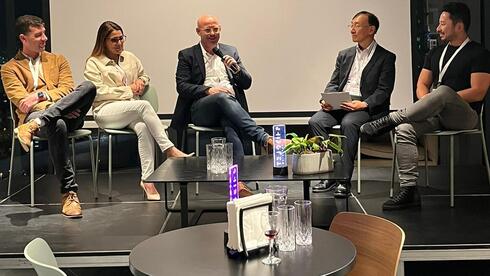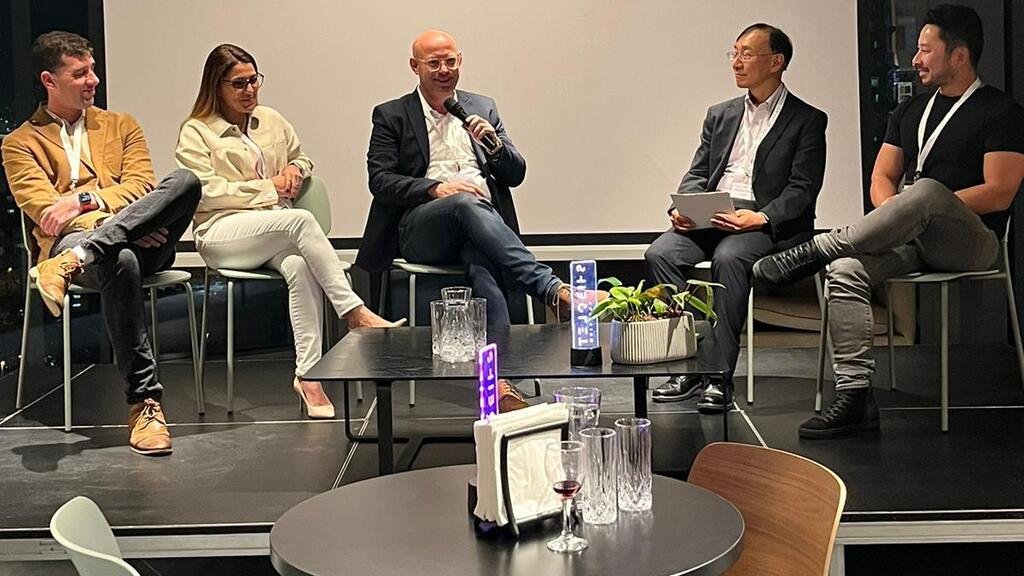
Aaron Mankovski: Patience is key when doing business in Japan
The differences in business culture between Israel and Japan were the focus of the discussion at a meeting between entrepreneurs and investors from the two countries organized by Discount Tech, Shibolet law firm, and the consulting company Million Steps. "Israelis ask a lot of questions. Japanese, on the other hand, are silent," said Yuta Iguchi, COO at Million Steps
"Patience is key when doing business with Japan and patience is not necessarily a part of the Israeli DNA, but those who are blessed with patience can achieve great things in the Japanese market," said Aaron Mankovski, Managing Partner at Pitango, speaking at an event organized by Discount Tech, the Shibolet law firm and consulting company Million Steps.
"My advice to all Israeli companies interested in doing business in Japan and also to those from Japan who want to do business with Israelis is to send expert representatives from Japan to Israel and Israel to Japan who will manage the relationships between the parties. There is no better way for them to convey to their colleagues what each side really thinks, it is a bit cumbersome but very important for success," Mankovski explained.
Yuta Iguchi, COO of Million Steps, which specializes in connecting entrepreneurs and investors from Israel and Japan, also pointed out the cultural differences between the two countries and the need for a deep acquaintance with them. "When something is not clear between the parties and they are trying to understand what the problem is - the Israeli will ask a lot of questions along the way. The Japanese, on the other hand, are silent. We look like broken computers in such cases, but this is the way Japanese representatives process data, talking among themselves and deliberating. My advice is to be patient and move forward from there." According to Iguchi, decision-making in Israeli companies happens quickly and then feedback is also given. "In Japan, it takes a long time because the Japanese want to hear everyone's opinion to make sure they don't make any mistakes. In Japanese culture, you can't make mistakes."
Guy Navon, CEO of Discount Tech, who opened the event that took place this week in Tel Aviv, said: "Japan is one of the most advanced economic centers in the world, and creating a connection between Discount Tech's portfolio companies and Japanese companies and executives is a significant added value for Israeli companies. That's why we created D-Network, to bring real value to Israeli startups and they will bring real value to our Japanese partners."
According to Navon, the basis of the idea for the joint conference is to create unique business and technological collaborations for large Japanese and Israeli companies. Companies wishing to enter the Japanese market will be able to undergo a validation process in Japan by Million Steps. At the end of the process, companies in which Japanese customers express interest will be invited to join business meetings, as part of side events with Japanese customers and investors, at the joint conference Discount Tech and Calcalist will be holding in Tokyo this May.
Discount Tech, the high-tech banking arm of Discount Group, provides a variety of financial services to startups backed by venture capital, meeting the needs of high-tech companies and their employees. To support its portfolio companies and create added value for them, Discount Tech established D-Network, an array of partnerships, activities and international connections that allows portfolio companies to enter and grow in existing and new markets. "Our portfolio companies need much more than banking services, and this is precisely the purpose of the event," Navon said.
In a panel where Israeli entrepreneurs shared their experiences from collaborations with Japanese investors, Keren Shemesh, REE's marketing manager, said: "After every meeting, you should talk to your representative-facilitator. We still do that even now, four years later. Don't expect to leave a meeting and do business immediately as you would do in Israel, because working with Japan requires a lot of patience."
To the question of the moderator of the discussion, Maya Koubi Bara-nes, a partner in Shibolet, Nimrod Barel, CEO and co-founder of SpecterX, said: "During our first meetings with them, the Japanese asked once if it was okay to stop and deliberate with each other. We responded in the affirmative, but it lasted seven minutes which, in a Zoom call, felt like an eternity to us. In another case, although we received very excited reactions from the other side, after the meeting was over we looked at the notes and realized that we didn’t understand anything. We had no idea if they liked the presentation or not."
Many Israeli tech companies see Japan as the business gateway to the East and are considering opening branches and offices in Japan, recognizing its economic importance and being an advanced and convenient center for operations in other Asian countries. Israeli companies can find sources of investment, customers and collaborations in Japan or, alternatively, issue on the local stock exchange.
The Japanese, from their end, are very interested in Israeli startup companies, which excel in creative and ground-breaking technological solutions. The Japanese are very innovative and ambitious in their approach, and on the other hand very methodical and careful. That is why cooperation with Israeli companies is an excellent way for them to find practical innovation and by JVs (joint ventures) within which they can limit the level of risk.














